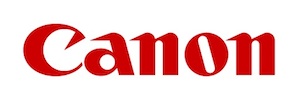Hi. This is Frank Romano for WhatTheyThink.com. As usual, I get prompted to do something based on articles that I see. I read just about everything that comes across the Internet except the Sarah Palin emails. This article was very interesting to me. It says Death of the yearbook, or it says Death of the old school yearbook—old school, old school—that’s very interesting. And it says that yearbooks are declining at 4.7 percent per year, and that school districts are putting the money into other things rather than spending the money on yearbooks.
Well, I contend that the yearbook marketplace is going to change. It’s not going to be done by traditional yearbook companies. As you look into the future, what’s going to happen I think is a bunch of kids are going to get together, and they’re going to put their yearbook together on their personal computers, and they’re going to send it off to some digital printing company, and that will be their yearbook. They will create their own. They do it now but they get a lot of help from the company that produces the yearbooks, and those companies have been very strong in that marketplace for many years. In the old days they actually gave you computers, they gave you assistance, they gave you help in a variety of ways.
This all came home to me the other day because we just did aGuide to The Museum of Printing. You know, I’m involved with this Museum of Printing in North Andover, Massachusetts, one of the few places in the United States where we’re trying to preserve the letter press craft as well as other technologies. And we decided that this book would be full color; that is, every page would have color photographs on it. By the way, you might not get excited about old printing presses, but there are people like me who do.
Now to produce this book in the old days would have cost a fortune because it would have had to be done by offset lithography, and the run would have had to been very large in order to justify the make-ready and other costs. This was all done digitally, coded cover; by the way, process color on the back, very nice paper. I mean it’s a joy to go through in terms of covering the history of printing. But more importantly, the fact that I produced—or we produced—a full color book at nowhere near the cost that you would have spent for offset lithography.
Now I’m not pooh-poohing offset lithography, but I believe as we move into the future the yearbook will become something that will be done on-demand. So if students want it, they go to a website and it gets printed for them and they buy it; and if they don’t want it, they don’t go there. So there’s no cost to the school district because the students do the project and they pay for it as they go along. Now there’s not only the yearbook that we have from high school and college, but now even in grade school they have—certain grades—they have a sheet with the picture of all the students in the class and it used to be a photograph. Of course, now it’s becoming a digital print.
So the world of yearbooks only reflects what’s happening with digital printing, an on-demand world, where now the users, kids, can actually put it together. The technology is such—and by the way, if you want to understand computer technology ask a kid because they dig it. They’re into Photoshop, they’re into putting pages together, they know how to do this stuff, and they will find their peers within the high school or college environment. By the way, many colleges don’t do a yearbook. It may be done by an independent company in some cases, but I know our university, here at RIT, we don’t do a yearbook any more. We used to do one. I once hosted the class from 1950 and I had their yearbook. I scanned the pictures out of it and I got a current picture, and I did their badges with both their picture from 1950 and the picture from 2000 for their 50th anniversary.
So again, this is what’s changing the book world, the yearbook world, anyplace where you produced a memory-based material has shifted over to digital—and that’s my opinion.

 Official camera partner of WhatTheyThink and the drupa daily.
Official camera partner of WhatTheyThink and the drupa daily. 













Discussion
By Charles Corr on Aug 10, 2011
Frank, I agree.
The Yearbook market will change. It is still tied to long-standing agreements and content (they capture photos) and create content. I believe you have to help the students, staff or other volunteers on capture and creation. Regardless, it will be increasingly printed digitally. The ability to create your version of the book will make it even more attractive.
By Thomas Pelillo on Aug 10, 2011
Frank, I agree as well.
In fact I even have proof . . . I graduated from RIT in '08 but before I left I worked 2 years on a project called 'Timleine.' It was RIT's revival of a yearbook. We captured events throughout the entire year and then put the book up online for students to order. Orders were sent to a local digital print shop and printed On-demand using iGen Technology.
By Regis Delmontagne on Aug 11, 2011
Frank. Did you see the TV clip about the London riots and the commentator noted that the only shop not looted in one particular block, was the bookstore. I guess books weren't on their shopping (looting) lists.